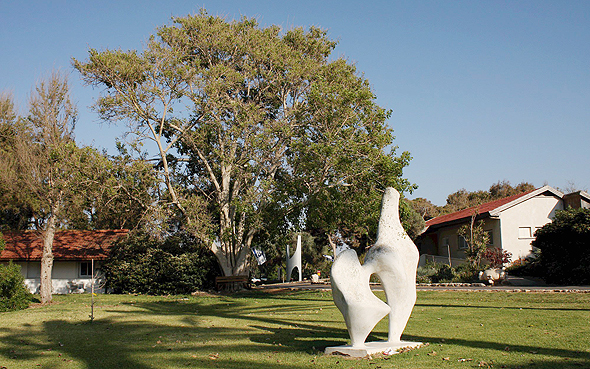Why will the Sdot Yam Kibbutz pay a fine of 360,000 NIS?
The Haifa District Court accepted the state’s appeal against the fine imposed by the lower court in the amount of 150,000 NIS.
In December 2017, the Sdot Yam kibbutz and a company owned by it were found guilty of illegal land use without a permit on land designated as “open public space” for 17 years. Indeed, the land was used as an event and reception hall.
Although the land has been used for 17 years, the Hadera Magistrate Segal Mohar sentenced the kibbutz and the company to a fine of 150,000 NIS, and they were required to refrain from committing an offense for three years. The two individuals operating the companies were each fined 15,000 NIS and were required to sign a commitment not to commit an offense for three years.
Additionally, an order was issued to cease the illegal use of the land and a demolition order for illegal buildings, the implementation date of which was postponed to the end of October 2018.
The state, through the Attorney General, appealed the monetary fine imposed in the sentence and requested a significant increase in the fine in accordance with Amendment 116 of the Planning and Building Law.
What has happened since:
In an appeal submitted to the Haifa District Court, the state indicated that the park operated in a cleared area of 1.3 dunams in the Caesarea National Park and 100 meters from the water. According to the state, the penalty is lower than the level of sanction used in similar cases and is unjustified. “The verdict is incompatible with the court’s own rhetoric, which emphasized the importance of the court’s contribution to the fight against illegal use,” the state stated in its appeal. According to the state, the penalty of 75,000 NIS imposed on companies that managed a reception hall without a permit for years did not prevent the offense when the investigation opened, with the hall generating millions of shekels. The deterrent objective has completely failed.
The state requested the court to modify the penalty in such a way as to significantly increase the fine and require the defendants to sign a commitment for a more discouraging amount. Furthermore, the state requested the court to order that the prohibitions on use and demolition be enforced immediately.
On the other hand, the kibbutz claimed that it was necessary to take into account their contribution to the community, as some activities of the hall consisted of organizing bar mitzvahs for orphans and the disabled. They also claimed that the operation of the venue had not caused harm to society, but rather the opposite. The defendants also argued that the use of the hall was limited to weekends for only certain months and that the venue was open to the public the rest of the time.
What was decided:
Judge Shmuel Mandelbaum accepted the state’s appeal. “I have come to the conclusion that the penalty in the case before us deviated significantly from the amount of the penalty in similar cases and that, under these circumstances, the court could intervene in the sentence,” the judge wrote in the decision.
Mandelbaum added that not only had the complex operated without a permit for 17 years, but it continued to operate during the investigation that took place after the indictment was filed and even during the trial until the end of the 2017 season. Mandelbaum noted that the lower court had erred in stating that the operators Dan Gili had ceased operations in 2016 and had begun the permit application process.
Mandelbaum emphasized another serious reason: the extent of the offense: 1300 m2 used for commercial purposes for a long time on land open to the public in a national park and a coastal area. Furthermore, the financial profits derived from the operation of the park by the kibbutz and the reception hall for a period of at least 17 years constitute another aggravating reason already mentioned by Mandelbaum. Additionally, the court accepted the claim that the garden was only used a few months a year, while the garden was open to the public. He also emphasized that it should be taken into account that the state had not acted in any way for 15 years. Mandelbaum deemed it appropriate to intervene and increase the fine between 180,000 and 400,000 shekels, but decided that the kibbutz and the company operating the venue would each pay 180,000 shekels instead of 75,000 shekels. It was further decided that the letters of commitment not to commit construction offenses by the kibbutz and the company it owns would increase from 100,000 NIS to 200,000 NIS.
However, Mandelbaum did not accept the state’s request regarding the immediate closure of the venue, in order not to penalize those who had booked the hall in the near future. The judge therefore maintained the closure date for the end of October 2018.



